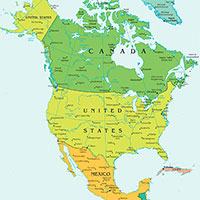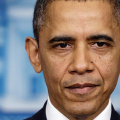Who’s Saying What on Trump
Forrest Watkins | November 10, 2016.
Emotions ran high as dawn broke in Marrakech, Morocco and media sources began to call the American election for Donald Trump. Delegates to the UN climate conference and civil society observers expressed varying levels of concern about the incoming US administration, but largely resolved to keep pushing for climate action and the continuation of countries’ processes for ratifying the Paris Agreement.
In the coming days, the media will analyse nearly every source and consequence of Trump’s victory, and many will want to know what a Trump administration will mean for ongoing UN climate change negotiations. Like any American president, Trump will undoubtedly hold considerable influence over climate negotiations and US climate policy. But in Marrakech, negotiations will proceed as planned. In lieu of ongoing coverage of the US election, The Verb presents a roundup of issues surrounding climate change and the Trump presidency.
Dr. Joe Romm for Think Progress looks at the likely effects of a Trump administration on the proliferation of clean technology in the US and around the world. He argues that while renewable energy will now inevitably replace fossil fuels on a global scale, Trump’s proposed policies could significantly delay their adoption. Trump has pledged to kill the US Environmental Protection Agency’s carbon pollution standards and to remove the US from the international climate agreement reached in Paris, potentially ending the world’s chances of staying below 2°C of human-induced warming.
Bloomberg has a round-up of global voices addressing the implications of Trump’s victory for climate action. In a statement, 350.org executive director May Boeve has called it a “disaster,” predicting that Trump will try to halt climate action. Others seem more optimistic: Marshallese President Hilda Heine said in an email that she expects “he will realise that climate change is a threat to his people and to whole countries which share seas with the U.S.”
Thomas Hale in Climate Change News further explains that while a Trump administration could do significant damage to the climate, there are a number of safeguards written into the Paris Agreement that minimise damage from changing political winds. First among them is a provision that causes a four-year delay for any countries wanting to leave the agreement. He also argues that because most nations now recognise the link between climate action and co-benefits to the economy and human health, the international community will continue to ramp up its mitigation and adaptation efforts even in the absence of continued US participation.
Carolyn Kormann’s essay in The New Yorker addresses Trump’s history of climate denialism. She notes his 2012 tweet calling climate change a hoax perpetrated by the Chinese, as well as his resolute skepticism with respect to international climate negotiations. She also delves deeper into his dissonant domestic energy policy, pointing to his continued and widely refuted insistence on attempting to both promote domestic gas production and rescue the country’s coal industry from collapse.
In Nature, Jeff Tollefson, Lauren Morello, and Sara Reardon elucidate the feelings of the scientific community about the forthcoming Trump administration. He has derided and expressed fear over such institutions as NASA and the National Institutes of Health, and scientists cite this rhetoric as the basis for fears of funding cuts and a loss of foreign talent.
Jeremy Symons in the Huffington Post profiles the man chosen to lead Trump’s Environmental Protection Agency (EPA) transition team, Myron Ebell. Ebell is currently the Directory of the Center for Energy and Environment at the Competitive Enterprise Institute, a group with a long record of funding from fossil fuel companies. Trump has said that he will dismantle the EPA using budget cuts and regulatory changes, and Ebell, who falsely believes that climate change impacts will have a negligible impact on humanity (climate-linked droughts alone impacted 400 million people last year), seems like the right person for the job.
Finally, there is the question of President Obama’s signature environmental regulations. In Think Progress, Natasha Geiling offers another perspective on how Donald Trump could reverse the Obama administration’s previous climate action. Her main focus is on Supreme Court vacancies and the role of the court in deciding the fate of President Obama’s carbon emissions regulations.
With writing from Vicky Fenwick-Sehl.









![Secretary-General Ban Ki-moon meets with Leaders from Small Island Developing States
[Secretary-General’s Conference room, Le Bourget]
- H.E. Mr. Anote Tong, President of Kiribati
- H.E. Mr. Christopher J. Loeak, President of Marshall Islands
- H.E. Mr. Freundel Stuart, Prime Minister of Barbados
- H.E. Mr. Kenny Davis Anthony, Prime Minister of Saint Lucia
- H.E. Mr. Enele Sosene Sopoaga, Prime Minister of Tuvalu](https://theverb.org/wp-content/uploads/2015/12/SG-Travel2-e1449660252704-120x120.jpg)



comment